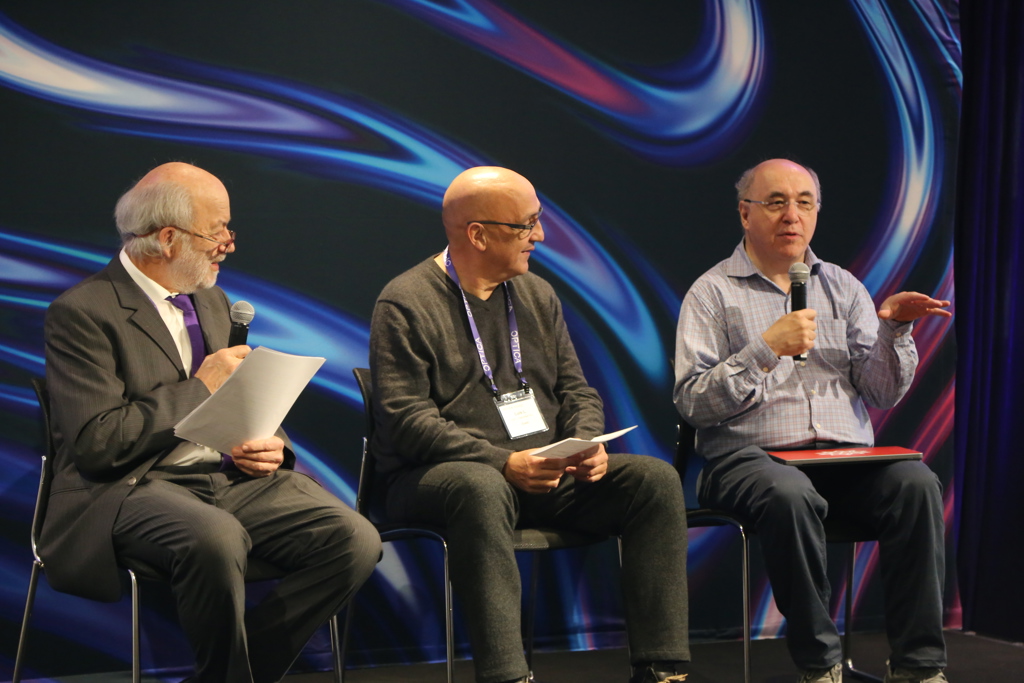Mathematician, physicist and entrepreneur Stephen Wolfram chats with Optica Leadership
Mathematician, physicist and entrepreneur Stephen Wolfram chats with Optica Leadership
Leah Poffenberger, Optica Communications

Caption: Stephen Wolfram (right) with Optica President Gerd Leuchs (left) and Optica Fellow Luis L. Sanchez (center).
Stephen Wolfram’s fascination with the physics began as many have: with reading a book on the subject at 10 years old. Unlike most people though, Wolfram published his first scientific paper at 15 and had earned a PhD from Caltech by 20. He continued an unconventional career, repeatedly moving between periods of basic research and building better tools to power discovery.
During Optica’s annual Leadership conference, Wolfram joined Optica President Gerd Leuchs and Optica Fellow Luis L. Sanchez for a wide-ranging conversation, from Wolfram’s early career to his thoughts on technologies of the future. As the creator of Mathematica, Wolfram|Alpha and the Wolfram Language, Wolfram has long been an innovator in computation and offered perspectives of the development of his own tools and how he sees quantum and AI impacting science and society.
Wolfram’s career started in a “hot area,” particle physics, but he quickly pivoted to building computational tools to better help him—and his colleagues—solve problems. He started building his first large-scale computer system, the symbolic manipulation program (SMP), a forerunner of Mathematica and the Wolfram language. In 1988, after leaving Caltech and starting his own company, he released Mathematica, which met the demand of “giving people the ability to do more calculations themselves.” However, despite being a CEO, he continued to go back to explorations in basic science, like a project to describe the complexity of the universe in a computational way. (This quest is the premise of his 2020 book A Project to Find the Fundamental Theory of Physics.)
Of course, no discussion with a computational pioneer is complete without a discussion of quantum computing and the role of AI in physics. Wolfram, who worked on a quantum computing project in 1981 alongside Richard Feynman, sees a lot of areas of interest in quantum computing, like the idea of making computers from things other than semiconductors. However, he remains “unconvinced” that quantum computing will reach the point of quickly solving equations that are impossible for a classical computer.
Wolfram sees AI and Machine Learning as useful tools to apply to research, but says they won’t “solve science.” When asked if ChatGPT is really that smart, or if humans are just not that complicated, he says “It’s mostly the second thing! We thought the generation of language was such an amazing thing that doesn’t have straightforward rules—but it’s more straightforward than we thought.” His thoughts on AI and ML impacting jobs is positive: That these tools will open up new areas that will require people to explore.
